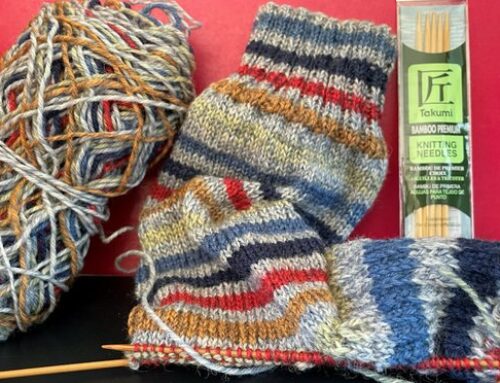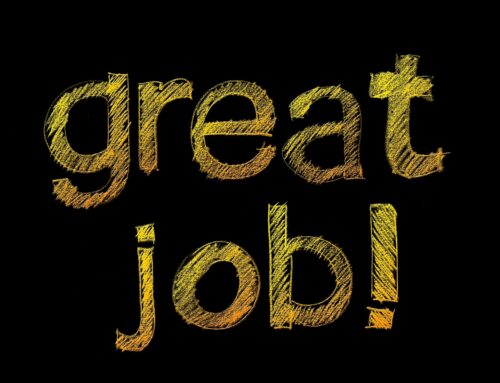
How to Handle Professional Setbacks and Move Forward
It feels like 1994 all over again as the world revisits the O.J. Simpson criminal trial in the television series “The People v. O.J. Simpson: American Crime Story.” The often poignant series chronicles the case focusing primarily on the lawyers who tried it. I was a litigation attorney during this period and vividly remember flash points from the news of the murders on June 12, 1994, to the Ford Bronco low-speed car chase, to the verdict on Oct. 3, 1995, when all of the employees at my firm gathered in front of a small television set to witness the outcome as so many people across the country did. The trial lasted almost a year, and held a magnifying glass to the American justice system and the role played by race, wealth and celebrity.
The TV show got me thinking about how to recover from a professional setback. The Simpson prosecutors are great examples of career rebirth. In two heartbreaking story lines, the “American Crime” series explores how choices made by Marcia Clark and Christopher Darden contributed to a defense verdict.
Despite knowledge of his racial prejudice, the prosecution called detective Mark Fuhrman to the stand without addressing his past, a decision that nullified key evidence from the crime scene because he was the one who found it. Fuhrman invoked his Fifth Amendment right when the defense asked, “Did you plant or manufacture any evidence in this case?” Later, he pleaded no contest to felony perjury charges arising from his initial testimony. A second disastrous choice was having the defendant try on leather gloves, one of which was found at the crime scene and the other at Simpson’s home. This played out in a way that was tantamount to allowing the defendant to testify without taking an oath, facing a single question or cross-examination.
As anyone who has uttered the words “may it please the court” knows, battlefield decisions are required, and some do not turn out well. Some of my appellate arguments were televised, but it was PCN, not NBC, seen only by those who made a point of tuning in and one insomniac friend who stumbled across one in the middle of the night. Few people face the harrowing experience endured by Clark and Darden of having every question, objection, decision, offer of proof, and argument on national television, and later analyzed, dissected and, in many instances, denounced by a crop of reporters, commentators and observers who sprung up to capitalize on cameras in the courtroom. Darden was vilified for prosecuting Simpson and Clark’s wardrobe, hairstyle and personal life became fodder for tabloid news catering to a voracious public demand for more.
Whether you were passed over for a promotion, didn’t get a job you wanted, are disappointed with a decision your company made or lost a case, there is always something you can do to move forward. One of my clients was laid off unexpectedly. Initially crushed, she ultimately started her own business and was happier than she had been in the job. Professional setbacks come in all shapes and sizes and, hopefully, no one reading this will ever face as enormous a setback as Clark and Darden did. But regardless of how big or small the setback is, there are steps you can take to rebound:
- I encourage clients to journal. Clark and Darden wrote books about their experiences, which gave them an opportunity to respond to critics, settle some scores and have the floor without any interruptions or objections. Darden used it to address Simpson directly, as he never had the chance to do during the trial. If your setback is not newsworthy, that is probably a good thing for your life, but you can get the same release from writing about it as they did. Writing is a good exercise for self-examination and leads to insights and revelations in a different way than just thinking or talking about it.
- Determine your responsibility for the outcome and discern what was beyond your control. When I lost a tricky trip-and-fall case, my boss at the time said four simple words about my opponent that helped me gain perspective: “He had the facts.” I knew I had bad facts when I first got the case, but during trial preparation, I became convinced I could win. In my view, that is a necessary mind-set to develop in order to face the jury. Ask yourself what you had power over and avoid the temptation to take responsibility for aspects beyond your influence. However, if there is something you could have done better, acknowledge that and make a point of learning from the experience.
- Find wins in other places than the outcome. There can only be one winner in a trial or appellate argument. An insurance defense lawyer told me that he considers it to be a win if the verdict comes in at a lower amount than the plaintiff’s last demand. He found a win even when he lost the case. Look at your preparation, performance and polish. Take pleasure in what you did well.
- Look for opportunities available as a result of the setback. This requires a shift in thinking and you may need some help to see beyond the immediate feelings of failure or shame. What did you learn and what can you do? Make a point of looking forward and start with just one step. Clark and Darden reinvented themselves. They both resigned from the district attorney’s office to pursue alternate careers and capitalized on their experience as lawyers. Darden became a law professor. Clark is a columnist, television commentator and has written four books. Depending upon the nature of a setback, there are options for rethinking, retooling and reinvention. Ask yourself: What is one thing I can take from this experience that can elevate and expand me?
- Find objective people to talk with about it, meaning they have no stake in what you do next. It will help you put your experience into perspective. If you run the scenario through your own mind only, you will miss out on other ways of seeing it, the part you played and, most importantly, the possibilities available. Coaches and mentors are valuable thought partners who can help you move past the past and into what you can do now.
- Take a break. Getting away from the work environment can help you heal. Consider a vacation or retreat. Seeing an ocean, mountains, giant redwoods, and being with people who care are reminders that your life is larger than your career.
As Vince Lombardi said, “It’s not whether you get knocked down, it’s whether you get up.” It is also how you get up and what you learn from being knocked down that can lead to a whole new way of seeing, and being, in the world.
Reprinted with permission from the April 21, 2016 edition of “The Legal Intelligencer” © 2016 ALM Media Properties, LLC. All rights reserved. Further duplication without permission is prohibited. For information, contact 877-257-3382, reprints@alm.com or visit www.almreprints.com.





